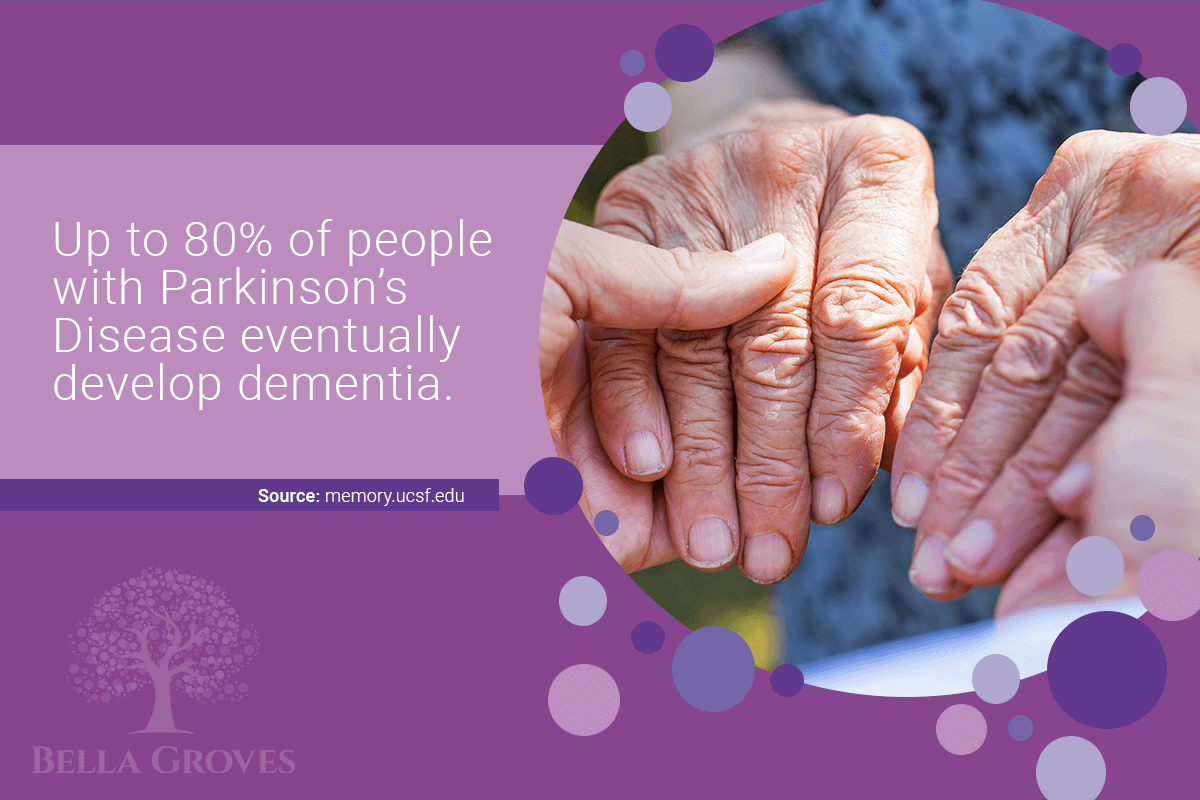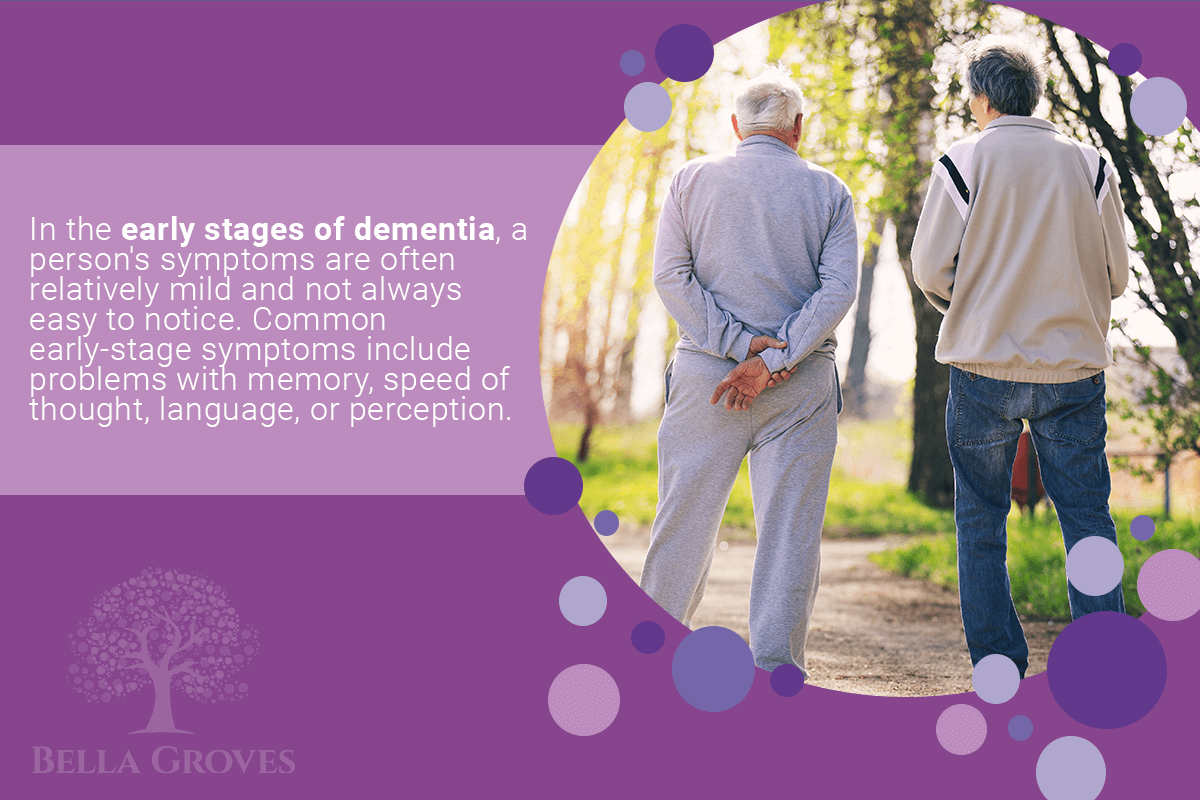
Parkinson’s Disease and Dementia
Parkinson’s disease is most known for its symptoms of mobility function, including tremors and slowed-down movement, but those diagnosed with Parkinson’s can also experience cognitive changes.
In fact, almost half of those living with Parkinson’s will be affected by some form of cognitive impairment, specifically changes in memory and thinking skills. Because of this, Parkinson’s disease and dementia are often linked together; as Parkinson’s progresses, individuals can develop the symptoms of dementia.
At Bella Groves, we’re proud to provide dementia education to help individuals and families navigate each step of their unique journey. When it comes to the relationship between Parkinson’s disease and dementia, we’re sharing how the two are associated and what to expect after a diagnosis.
What is Parkinson’s Disease Dementia?
Parkinson’s disease is commonly known as a movement disorder due to specific brain changes that begin to occur in the part of the brain that determines mobility function. These changes can lead to symptoms that include:
- Tremors
- Shakiness
- Muscle Stiffness
- Lack of Facial Expressions
Over time, the changes in the brain experienced during the progression of Parkinson’s can gradually spread to other parts of the mind. This leads to dementia-related cognitive changes that affect:
- Memory
- Thinking Skills
- Decision Making
- Staying Focused
When Parkinson’s begins to affect the area of the brain that controls movement, it’s because the nerve cells in that area of the brain either become impaired or die. These nerve cells are the same cells that produce the brain chemical called dopamine, which plays a major role in the way we:
- Think and Plan
- Focus and Pay Attention
- Show Interest
When less dopamine is produced in the brain, it makes it harder to coordinate muscle movements, which leads to the symptoms of mobility issues in Parkinson’s. The brain changes that link Parkinson’s with dementia are caused by abnormal microscopic deposits that are mostly composed of alpha-synuclein, a protein found widely throughout the brain, the function of which is not entirely understood. These deposits are called “Lewy Bodies” and are also found in other types of dementia, including dementia with Lewy Bodies (DLB).
It’s important to note that the disease that causes Parkinson’s is very similar to DLB. In fact, many scientists have thought these two conditions are actually the same diseases that begin in different places in the brain.
How is Parkinson’s Diagnosed and Treated?
While there’s no single test that can determine if a person has Parkinson’s, the Hoehn and Yahr scale is widely used during clinical trials to study and describe the way that motor symptoms and cognitive decline progress during Parkinson’s.
The Hoehn and Yahr scale is used along with the Unified Parkinson’s Disease Rating Scale, which gauges the severity of each unique case of Parkinson’s to create the best assessment for patients.
Treatment
As with other types of dementia, no treatments are currently available to stop or prevent the brain cell damage that Parkinson’s disease dementia causes. However, many treatment plans focus on improving symptoms through therapies and medications.
For instance, levodopa is one of the primary therapy treatments for Parkinson’s disease, which provides nerve cells in the brain with dopamine in order to replenish the lack of supply of the chemical. Levodopa can also be taken alongside carbidopa, which helps prevent the negative side effects of levodopa, including low blood pressure and nausea.
Other non-medical practices can help to manage the symptoms of Parkinson’s. For example, low-impact exercises like Yoga or Tai Chi can increase flexibility in the muscles. In addition, physical, occupational, and speech therapies can assist with tremors, voice problems, and decline in cognitive function.
Research and educating yourself is the most important thing a person or family can do when a loved one is diagnosed with Parkinson’s, especially if they’ve begun showing signs of cognitive decline.
Bella Groves dedicates ourselves to providing helpful navigation and educational insights into the nuances of dementia, including Parkinson’s disease dementia. Our service levels meet you where you are and provide the knowledge, tools, and support you need to find success and create unconditional joy.
If you have questions about your dementia care journey, we invite you to call us at (830) 323-0440 or email us at hello@bellagroves.com.


